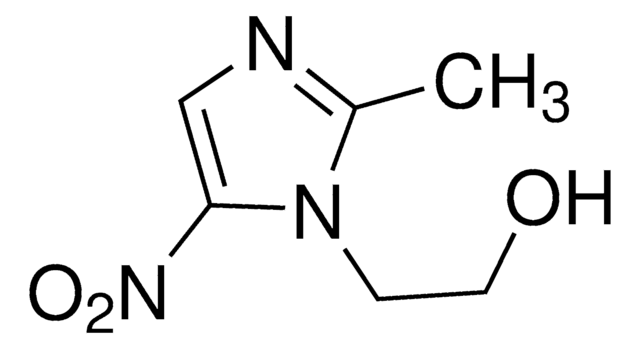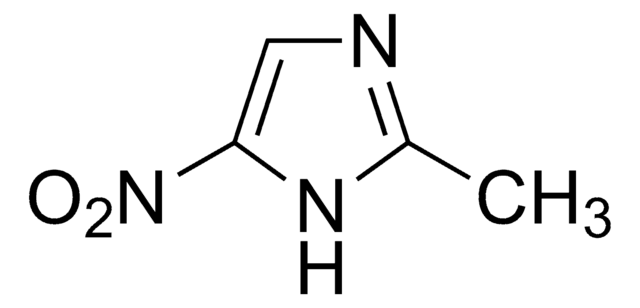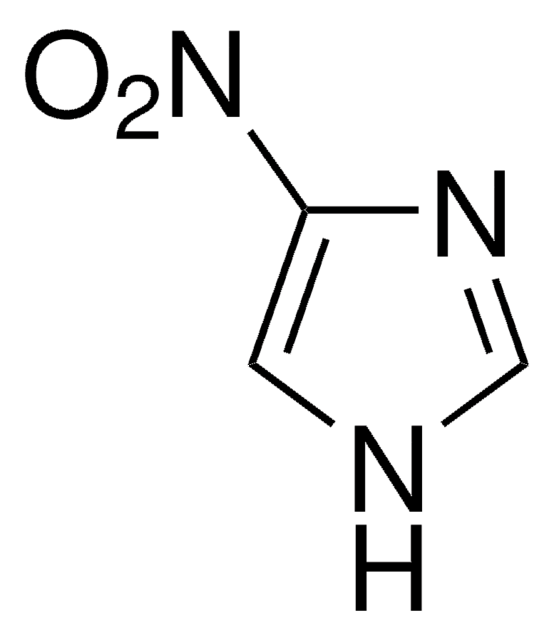M1850000
Metronidazole
European Pharmacopoeia (EP) Reference Standard
Synonym(s):
2-Methyl-5-nitroimidazole-1-ethanol
About This Item
Recommended Products
grade
pharmaceutical primary standard
API family
metronidazole
manufacturer/tradename
EDQM
mp
159-161 °C (lit.)
application(s)
pharmaceutical (small molecule)
format
neat
storage temp.
2-8°C
SMILES string
CC1=NC=C([N+]([O-])=O)N1CCO
InChI
1S/C6H9N3O3/c1-5-7-4-6(9(11)12)8(5)2-3-10/h4,10H,2-3H2,1H3
InChI key
VAOCPAMSLUNLGC-UHFFFAOYSA-N
Looking for similar products? Visit Product Comparison Guide
General description
Application
Packaging
Other Notes
Related product
signalword
Danger
hcodes
Hazard Classifications
Carc. 1B - Muta. 1B - STOT RE 2
Storage Class
6.1C - Combustible acute toxic Cat.3 / toxic compounds or compounds which causing chronic effects
wgk_germany
WGK 3
flash_point_f
Not applicable
flash_point_c
Not applicable
Choose from one of the most recent versions:
Certificates of Analysis (COA)
Sorry, we don't have COAs for this product available online at this time.
If you need assistance, please contact Customer Support.
Already Own This Product?
Find documentation for the products that you have recently purchased in the Document Library.
Customers Also Viewed
Our team of scientists has experience in all areas of research including Life Science, Material Science, Chemical Synthesis, Chromatography, Analytical and many others.
Contact Technical Service









